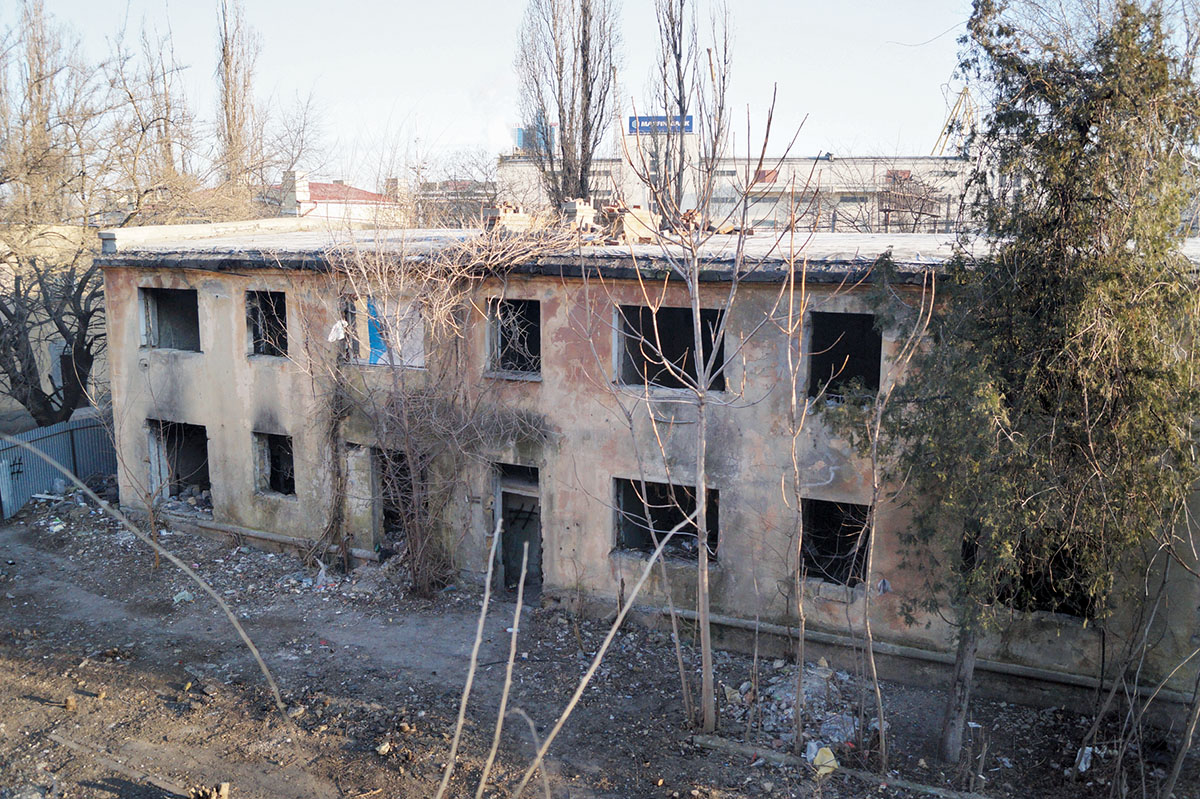A Danish engineering company, fresh from victory in a court case in Odesa, has announced plans to expand further in Odesa and open an office in Kyiv.
Back in February, Denmark’s BIIR Engineering and Design, which has a division based in Odesa, won a case in the Odesa Appellate Economic Court over rights to its premises in the city. The company had bought a run-down foreclosed building to set up a new office in March 2017, paying around $400,000 to a local real estate firm.
But just a few days later, the property was arrested by an Odesa court and BIIR discovered that its previous owner had filed a case claiming the Danish company wasn’t the legal owner of the property.
“Many people asked me of the experience we had with the raider attack, if it was something that held us back,” Thomas Sillesen, chairman of BIIR’s board, told the Kyiv Post on April 20.
“Not in any way.”
After an 11-month court battle, the court ordered the claimant to pay all previously unpaid court costs plus the court costs incurred by BIIR in its defense — a total of more than Hr 158,000 (about $6,000).

Danish company BIIR Engineering and Design was awarded a victory on Feb. 27 by the Odesa Appellate Economic Court in a case involving the rightful ownership of this property near the Black Sea. (Courtesy)
BIIR had been looking into buying another building in Odesa as well, in 2017, but decided to wait for the decision of the court.
Now “we’re looking at buying more,” Sillesen said.
Expansion
The company now plans to open a small administrative office in Kyiv this summer, instead of expanding BIIR’s administration functions in Denmark.
The company currently employs 350 people, a third of whom work in Odesa. There’s plenty for them to do: BIIR just struck a deal with one of its clients, which Sillesen said would double the firm’s turnover in Ukraine — although he wouldn’t give any absolute figures.
The Danish company has three owners — Jonas Bojer Christensen, Esben Eskerod Ifversen and Sillesen. Sillesen is planning to bring another company that he co-owns to Odesa to open an electronics distribution plant with branches in Denmark, Norway and Sweden.
“We want to expand into Ukraine in autumn 2018,” Sillesen said. He would not disclose the volume of investment.
“We already have the accountant team for this company sitting in Odesa, and will soon have the web-design team sitting in Ukraine also, as we will move 90 percent of the design work from Denmark to Ukraine.”
BIIR’s owners also co-own Techno Tool, a plastic packaging tool company with factories in Denmark and Malaysia. That company also wants to open a factory in Odesa soon.
Punishing wrongdoers
But to successfully expand, Sillesen wants to see Ukraine’s wrongdoers punished — specifically, the police officers and prosecutors who were responsible for bringing the court case against his company.
“We won, which was fantastic,” he said. “But what we now want, and kind of expect to see from Ukraine and Kyiv, is that they take our complaints about these officials seriously.”
“The fact that somebody attacked us is not a surprise, but the fact that the government officials kind of supported them is not satisfactory — neither for us but nor for the state… so we would expect them to be basically kicked out of their jobs.”
“And we hope that will happen before (Prime Minister Volodymyr) Groysman comes to Denmark on June 26, when I will meet him,” Sillesen said.
Denmark is hosting the international Ukraine Reform Conference in Copenhagen on June 27, taking over from the United Kingdom, which hosted the conference in London in July last year. European Union foreign ministers and representatives from NATO, the G7 countries and international organizations will attend.
“If we don’t take up this challenge and win this, who else is going to do it,” Sillesen asked. “I mean, we’re clean, we can take up the fight without any problems and without anyone trying to attack us at the same time, whereas most Ukrainians don’t have that privilege.”
BIIR says it did its due diligence and was satisfied with the purchase/sale documents when it acquired its property in Odesa.
“We want to do business the Danish way,” Sillesen said.
“There are opportunistic people all over the world, but the fact that you cannot trust officials is beyond belief for most Danes,” he said. “So that’s the only downside. But that said, we just love Ukraine.”
Sillesen is such a big fan of Ukraine, he says, that he would get dual citizenship if the law allowed. Ukrainians are still not allowed to have dual citizenship.
Brain drain
Unlike Sillesen, many Ukrainians don’t see so much promise in the country, and are trying to leave to find better lives elsewhere.
As a result, BIIR is experiencing a problem common to many other foreign companies in Ukraine — when their employees acquire enough skills, they look for jobs abroad.
“They become very well educated, suitable for Western companies,” Sillesen said.
BIIR is trying to tackle this issue by creating enough incentives to keep their employees in the country. For example, they are looking into providing better housing conditions for their staff members.
“What our office workers lack is that when they come home from work, they’re still going to a rented apartment, which can often look pretty bad,” Sillesen said. “So we’re looking to see if we can start building apartments or small houses for our staff so that they have a full package, which will mean that there’s no reason for them to move away.
“We have a Danish architect who will fly down with me (to Odesa) to have a look and get a feel of the place. We’ve already hired a building constructor for our company.”
